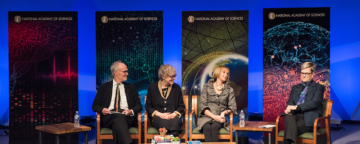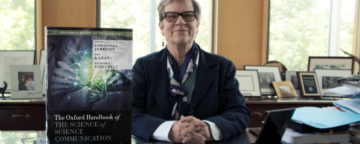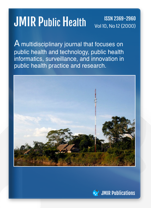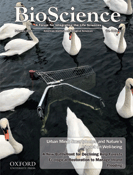Scholars, editors, and scientists at a National Academy of Sciences-Sunnylands-APPC retreat proposed uniform standards and greater transparency to clarify the roles of authors across different journals, fields, and cultures.
Science of Science Communication


Social Media Can Complement Surveys on Public Health Issues
An analysis of Twitter posts during the Zika outbreak in 2016 shows a correlation between Twitter topics and the results of nationwide U.S. surveys, according to researchers at APPC and the University of Illinois.

Understanding Evolution Leads to Greater Acceptance of It
Research from two APPC distinguished research fellows shows that Americans' understanding of evolution - as well as their politics and/or religion - is tied to their acceptance or rejection of it.

Video: Jamieson Moderates Sackler Panel on Threats to Science’s Reputation
APPC Director Kathleen Hall Jamieson moderated a panel focusing on threats to science's reputation at the National Academy of Sciences Arthur M. Sackler Colloquium on the Science of Science Communication.

The Role of Language in Discussing the Life Sciences
In an article for the journal Politics and the Life Sciences, Kathleen Hall Jamieson looks at the role that language plays when science is conveyed to the public. Examples include the outbreak of "mad cow" disease in Britain.

What Are the Challenges Facing Science Communication?
Gene editing, vaccinations, climate change: All are science issues enmeshed in political controversy. How should scientists try to convey the best available evidence? The editors of the Oxford Handbook of the Science of Science Communication discuss the field.


